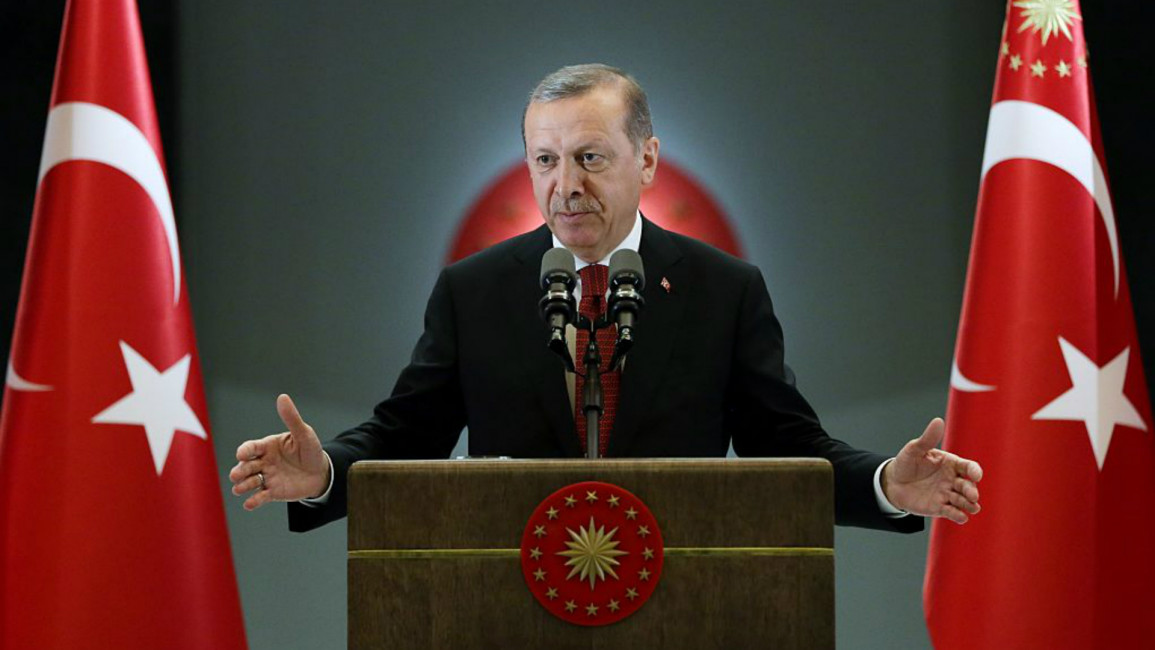
Turkish-Israeli rapprochement to provide many benefits
The reconciliation deal reached between Turkey and Israel this week, marks the beginning of a new era that will have local, regional and even global impacts. It is an important step in restoring a long-established alliance between the two countries which had become bogged down in the aftermath of the crisis surrounding the Mavi Marmara ship.
The agreement was reached after Turkey's conditions were met, which involved Israel's apology for the Mavi Marmara crisis, compensation to the families of the victims and a substantial lifting of the sanctions imposed on Gaza, leading to the normalisation of relations. The party that will benefit most will be the Palestinian administration, and especially the Gazan people, who have been struggling hard to survive under years of severe embargo.
In particular, the fact that President Recep Tayyip Erdogan kept Palestinian President Mahmoud Abbas and the Political Bureau Chief of Hamas, Khaled Meshal informed during the negotiation process, is a clear indication that the agreement is in line with the support Ankara has long given Palestine in the international arena. It demonstrates that it was drafted with the Palestinian side's expectations in mind.
Putting an end to the diplomatic crisis that persisted for six years between Ankara and Tel Aviv, the agreement marks the beginning of a new ear for Gaza, which has all but become to an "open-air prison" because of the embargo.
Gaza's residents have suffered extreme hardships and human rights violations. In addition their cause has lost its priority on the international agenda due to factors such as the Syrian crisis, Islamic State group and the tensions generated by Iran's expansionist policies. But Gaza, thanks to this latest agreement, has gained permanent support with a certain legal framework that will now be provided not through individual initiatives or aid organisations, but rather by the power of a state.
 |
Power plants, hospitals and housing that will be built through a development initiative to be headed by Turkey will be instrumental in resolving Gaza's chronic problems |  |
Gaza has suffered great devastation, and in particular its infrastructure has largely been destroyed as a result of Israel's military interventions. But power plants, hospitals and housing that will be built through a development initiative to be headed by Turkey will be instrumental in resolving Gaza's chronic problems.
Also as part of the agreement that has been reached, Turkish aid to Gaza will now not be limited, making it possible for Gaza to resume normal life through meeting its basic needs.
The agreement is also of vital importance for the Middle East, which has been going through turbulent times and plunging deeper and deeper into violence because of ethnic and sectarian conflicts. The areas of tension close to Turkish and Israeli borders have the potential to throw the entire region into chaos.
As a result, the partnership between Turkey and Israel - both of which have for a long time been witnessing bloody wars around their borders - will surely build the basis for a "security-generating" alliance in the Middle East, given their powerful militaries, political positions and also similar strategic visions.
It could be said that a vision to be developed by Turkey and Israel, two countries directly affected by threats in the region, will have a decisive effect in overcoming problems such as the Syrian crisis, which has become increasingly inextricable because of foreign military interventions, the threat of IS as well as violence generated by ethnic and sectarian disintegration.
 |
This agreement between the two parties is the only and perhaps the most hope-inspiring constructive strategic initiative witnessed in recent history in the Middle East |  |
One of the most significant aspects of the normalisation of relations between Israel and Turkey is the economic dimension of the cooperation between the two sides.
If Israel's project of transporting its rich natural gas reserves to Europe through Turkey becomes a reality, it will have a tremendously positive impact on Israel's economy, as Israeli PM Benjamin Netanyahu noted. The reserves were discovered in the Mediterranean and necessitate a lively and stable market due to high investment costs. If such a deal should be made, it will also mean a strategic opportunity for Turkey, which has been endeavoring to diversify its energy resources.
On the other hand, the transport of these resources to Europe through Turkey would be a significant development, affecting international energy policies and consequently political balances by creating a new and secure alternative route for Europe, which has so far been dependent on Russia energy-wise.
As a result, we may safely say - keeping in mind that meeting the expectations of the Gazan people is its focus and essential goal - that this agreement between the two parties is the only and perhaps the most hope-inspiring constructive strategic initiative witnessed in recent history in the Middle East, whose future prospects are getting more and more bleak by the day with each new crisis and chaotic event.
Mekki Arvas is a foreign affairs journalist and currently Chief Correspondent at Anadolu Agency's In-Depth News Analysis Desk. He previously worked as editor at several daily newspapers and has lived in a number of Arab countries as part of his work.
Opinions expressed in this article remain those of the author and do not necessarily represent those of The New Arab, its editorial board or staff.



